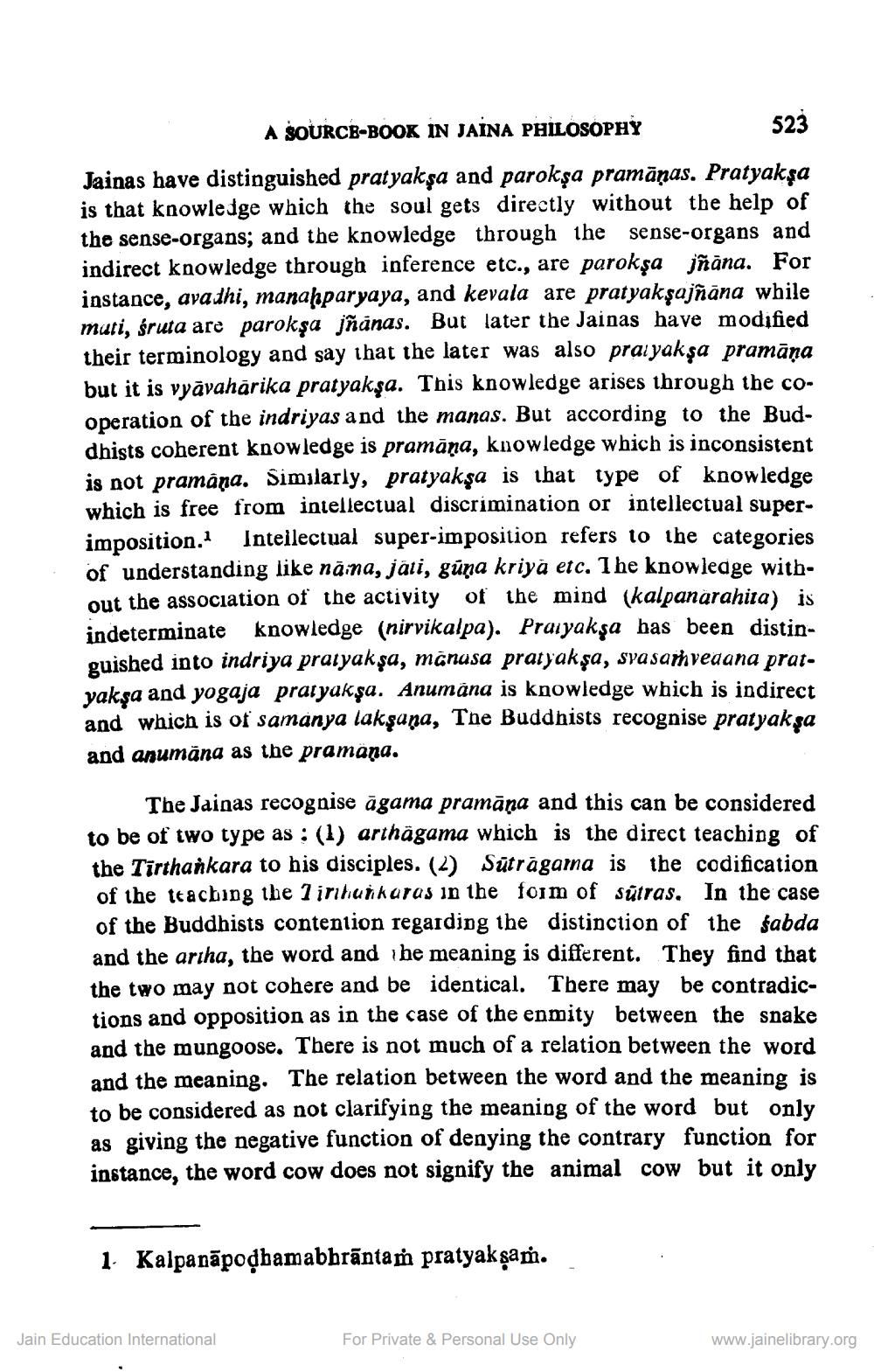________________
A SOURCB-BOOK IN JAINA PHILOSOPHY
523
Jainas have distinguished pratyaksa and parokșa pramānas. Pratyakşa is that knowledge which the soul gets directly without the help of the sense-organs; and the knowledge through the sense-organs and indirect knowledge through inference etc., are paroksa jñāna. For instance, avadhi, manapparyaya, and kevala are pratyakşajñāna while muti, śruta are parokşa jñānas. But later the Jainas have modified their terminology and say that the later was also praiyaksa pramāna but it is vyāvahārika pratyakşa. This knowledge arises through the cooperation of the indriyas and the manas. But according to the Buddhists coherent knowledge is pramāna, knowledge which is inconsistent is not pramana. Similarly, pratyakşa is that type of knowledge which is free from intellectual discrimination or intellectual superimposition. Inteilectual super-imposition refers to the
position refers to the categories of understanding like näina, jäii, gūna kriya etc. The knowledge witbout the association of the activity of the mind (kalpanarahita) is indeterminate knowledge (nirvikalpa). Praiyakşa has been distinguished into indriya praiyakşa, manusa pratyakşa, svasarhveaana pratyaksa and yogaja pratyakşa. Anumāna is knowledge which is indirect and which is of samanya lakşana, The Buddhists recognise pratyakşa and anumāna as the pramana.
The Jainas recognise āgama pramāna and this can be considered to be of two type as : (1) arthägama which is the direct teaching of the Tirthankara to his disciples. (2) Sūtrāgama is the codification of the teaching the lirihunkuras in the form of sūtras. In the case of the Buddhists contention regarding the distinction of the sabda and the artha, the word and he meaning is different. They find that the two may not cohere and be identical. There may be contradictions and opposition as in the case of the enmity between the snake and the mungoose. There is not much of a relation between the word and the meaning. The relation between the word and the meaning is to be considered as not clarifying the meaning of the word but only as giving the negative function of denying the contrary function for instance, the word cow does not signify the animal cow but it only
1. Kalpanāpodhamabbrāntaṁ pratyakşan.
Jain Education International
For Private & Personal Use Only
www.jainelibrary.org




